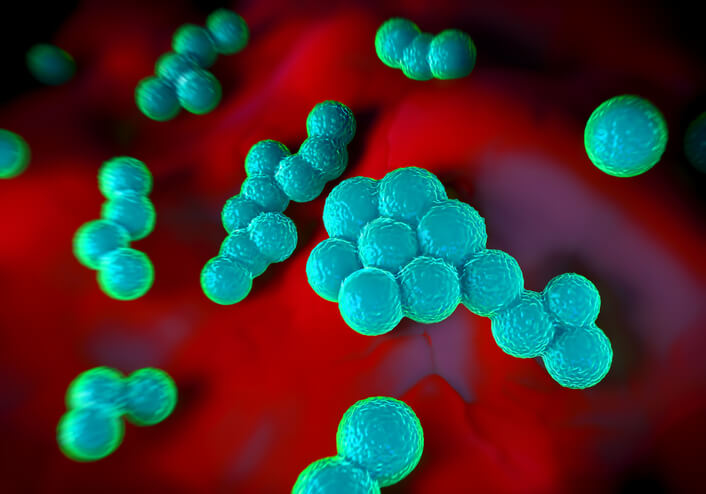
What Is Staphylococcus?
Staphylococcus aureus, commonly called “Staph” is a type of bacteria that can cause foodborne illness. This bacteria produces toxins that cause illness. About 25% of healthy people and animals carry Staphylococcus aureus on their skin and in their nasal passages. Contamination of food often occurs when people carrying the bacteria handle foods that are not cooked before being consumed, such as sliced deli meats, puddings, pastries and sandwiches.
What Are Common Environments For Staphylococcus aureus?
Staphylococcus aureus bacteria is very tolerant of salty conditions and can easily grow in foods with high levels of salt, like ham. Toxins produced are very fast-acting and symptoms arise quickly after consuming contaminated food.
How Dangerous Is Staphylococcus?
Symptoms of Staphylococcus aureus infection include diarrhea, nausea, stomach cramps, and vomiting. For most affected people the illness is brief, but if severe can require hospitalization and intravenous fluids.
Prevention and Treatment of Staphylococcus aureus Biofilms
Log10 carefully selects strains of probiotics that inhibit the growth of Staphylococcus aureus to include in custom formulations of Pre-Liminate™ probiotic blends. These proprietary blends can be used to remediate pathogens in food products or the environment, including resistant biofilms, effectively creating a safe food production environment.
Contact us to learn more about our probiotic blends for the prevention and treatment of Staphylococcus.
